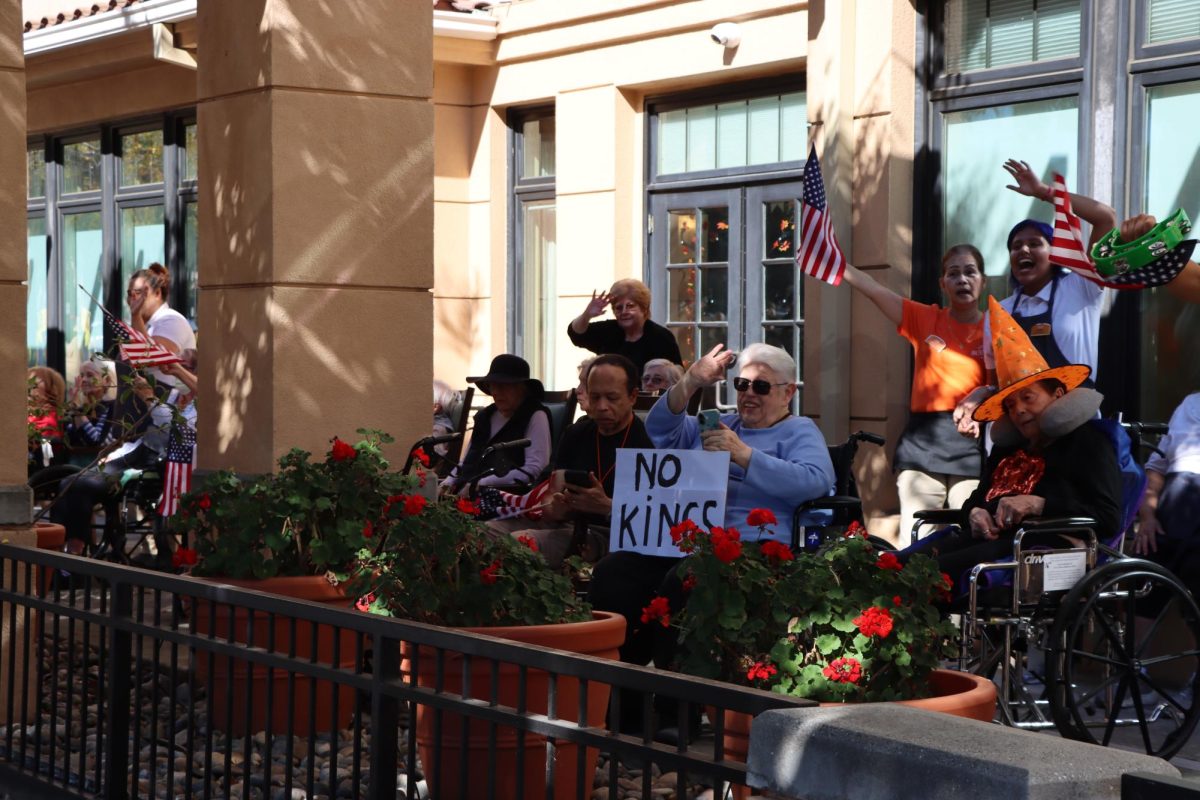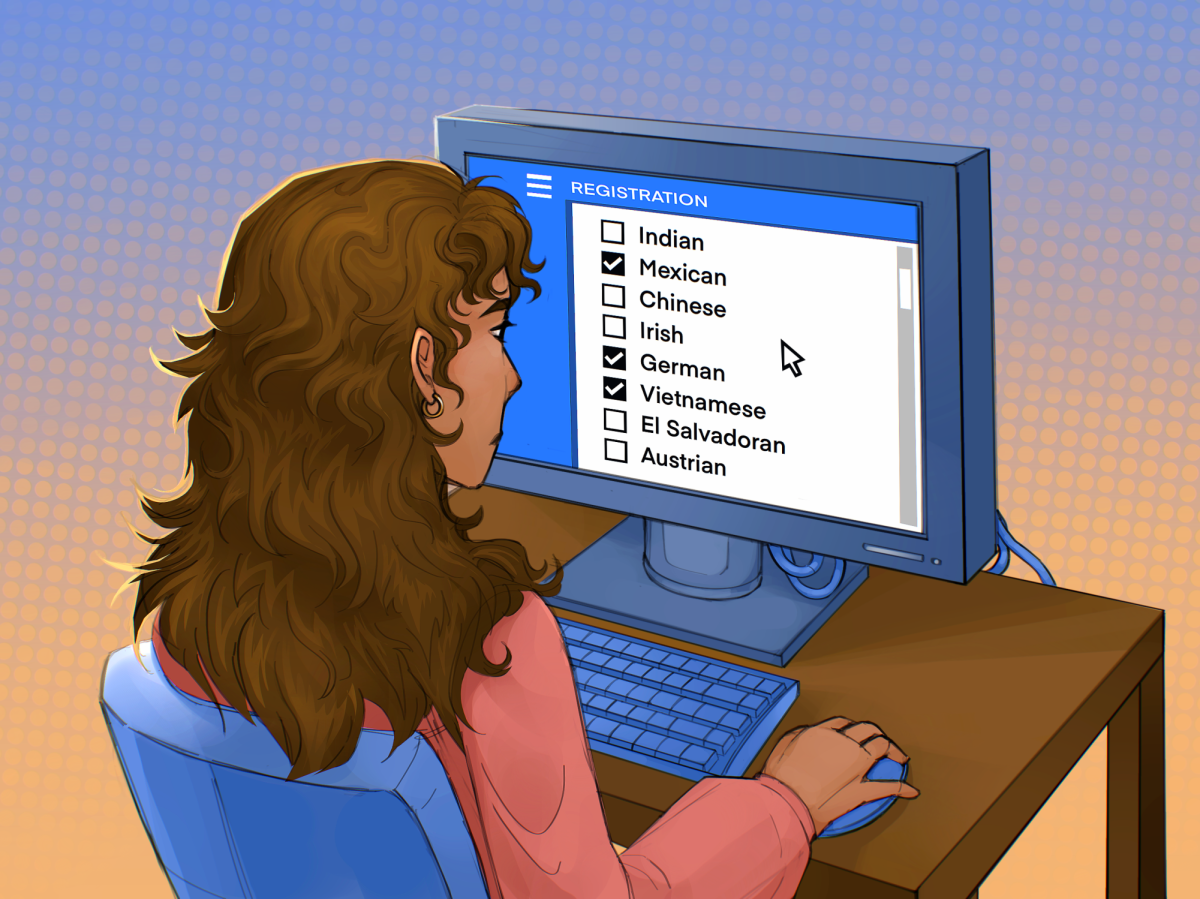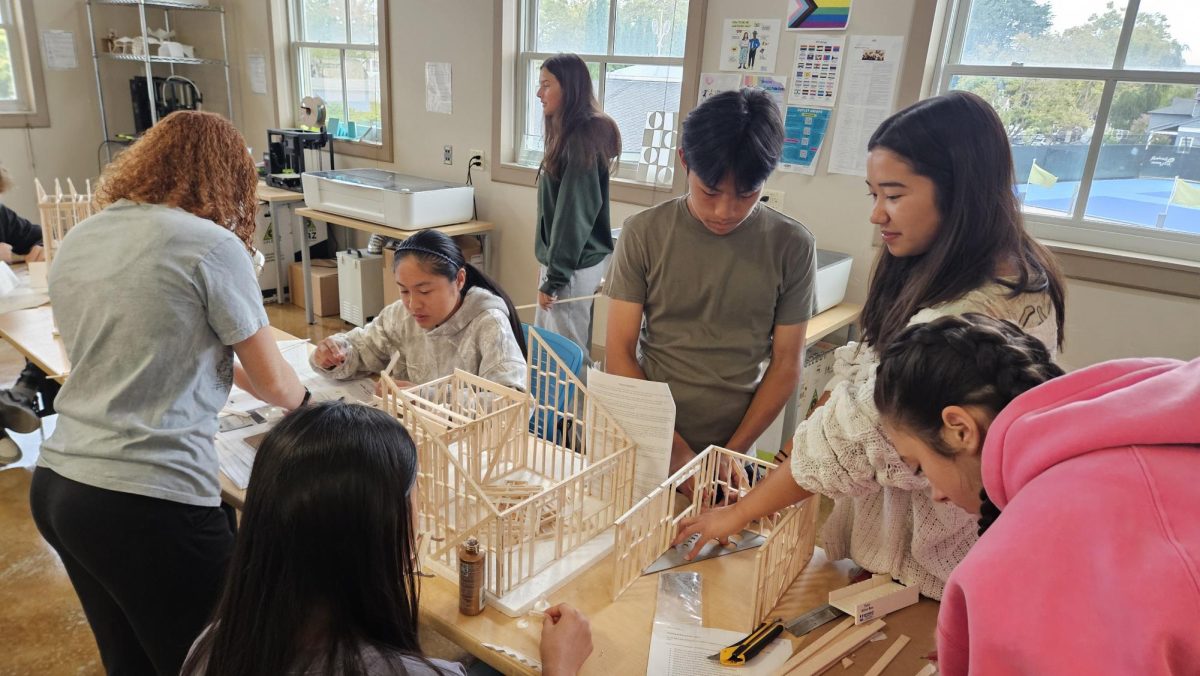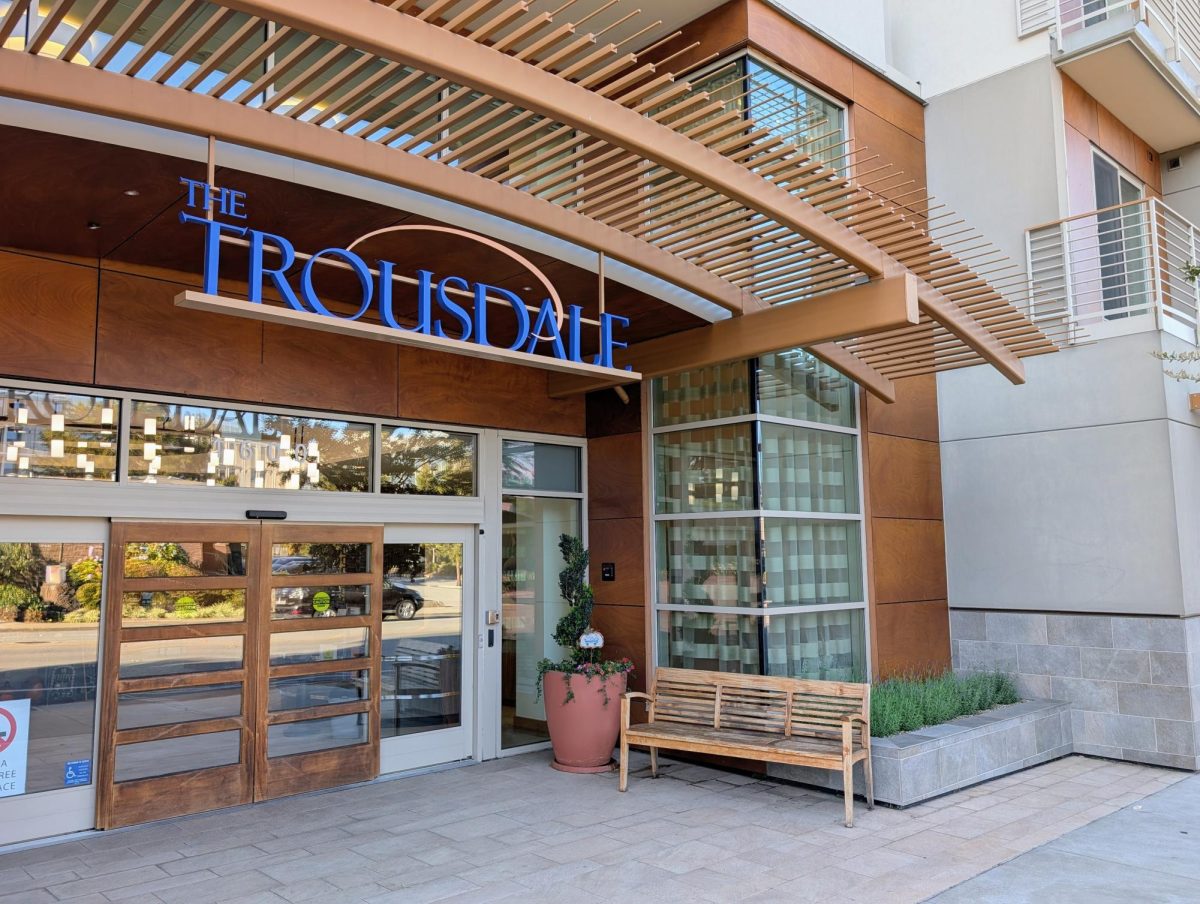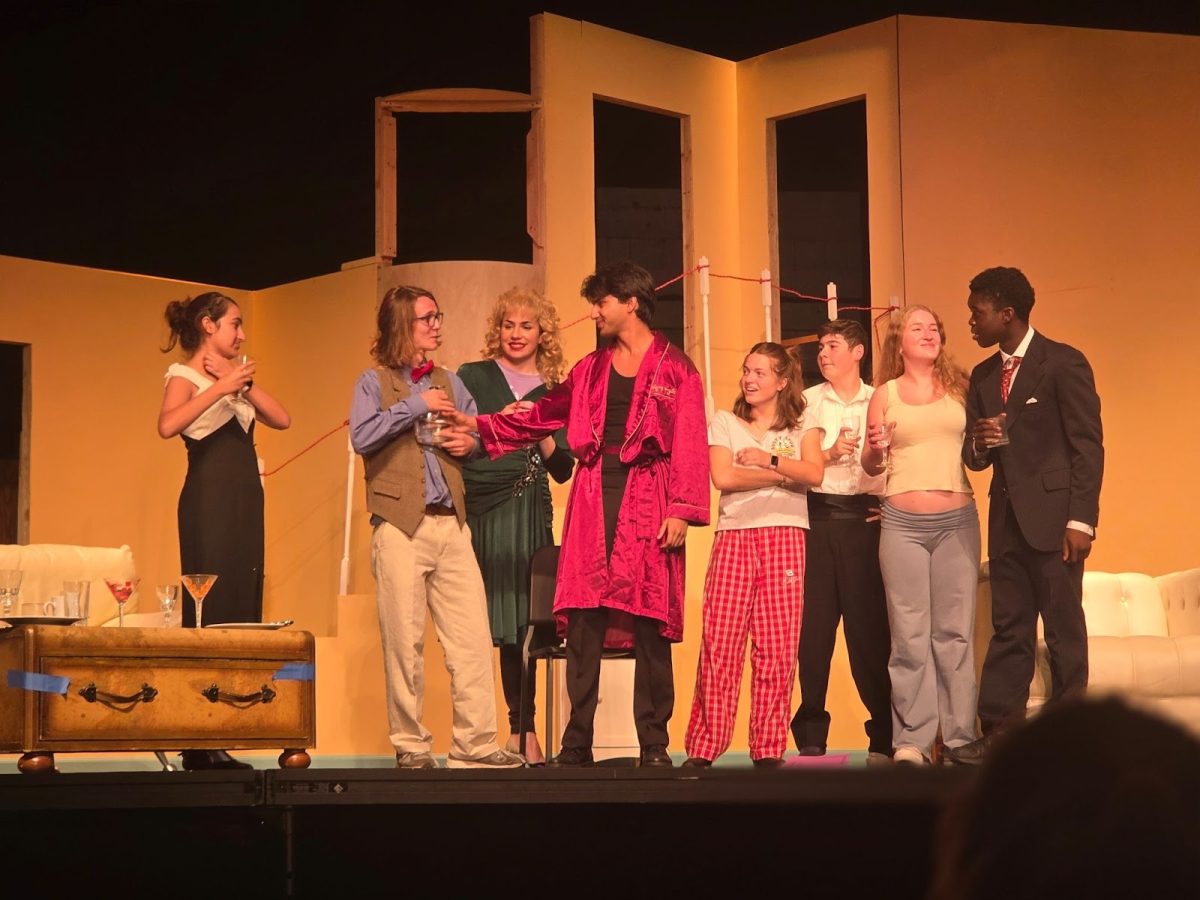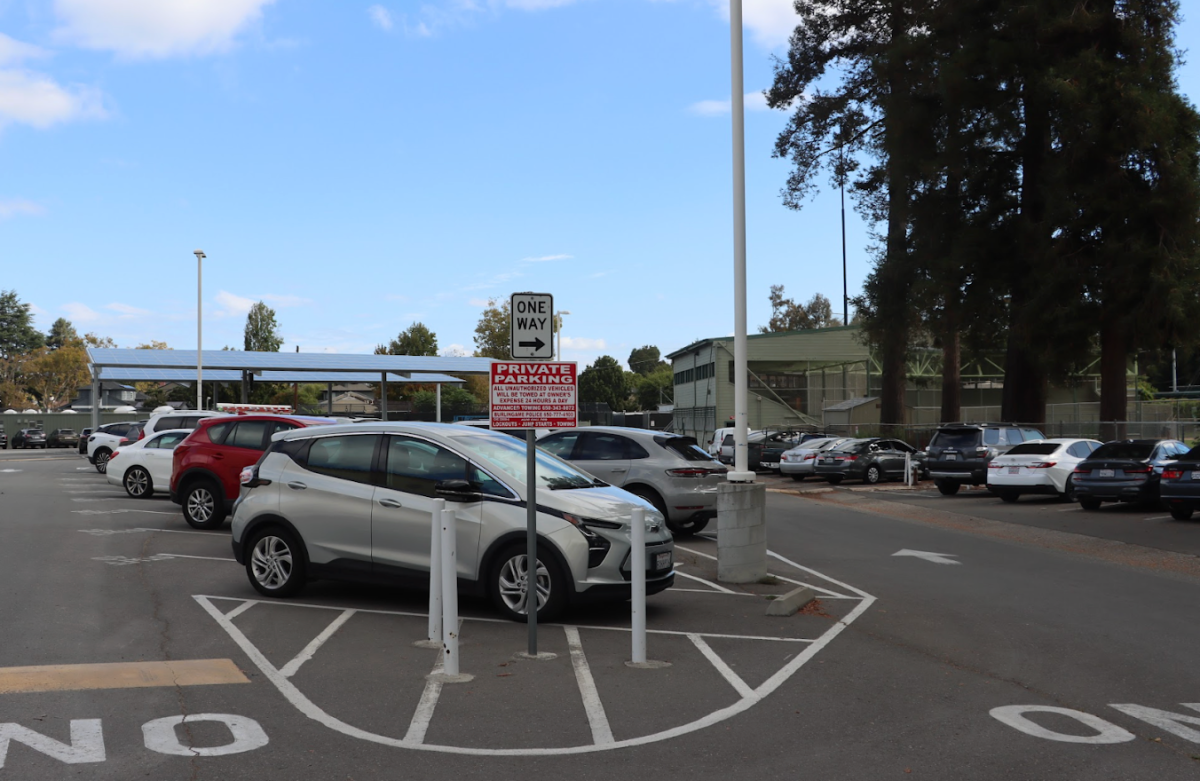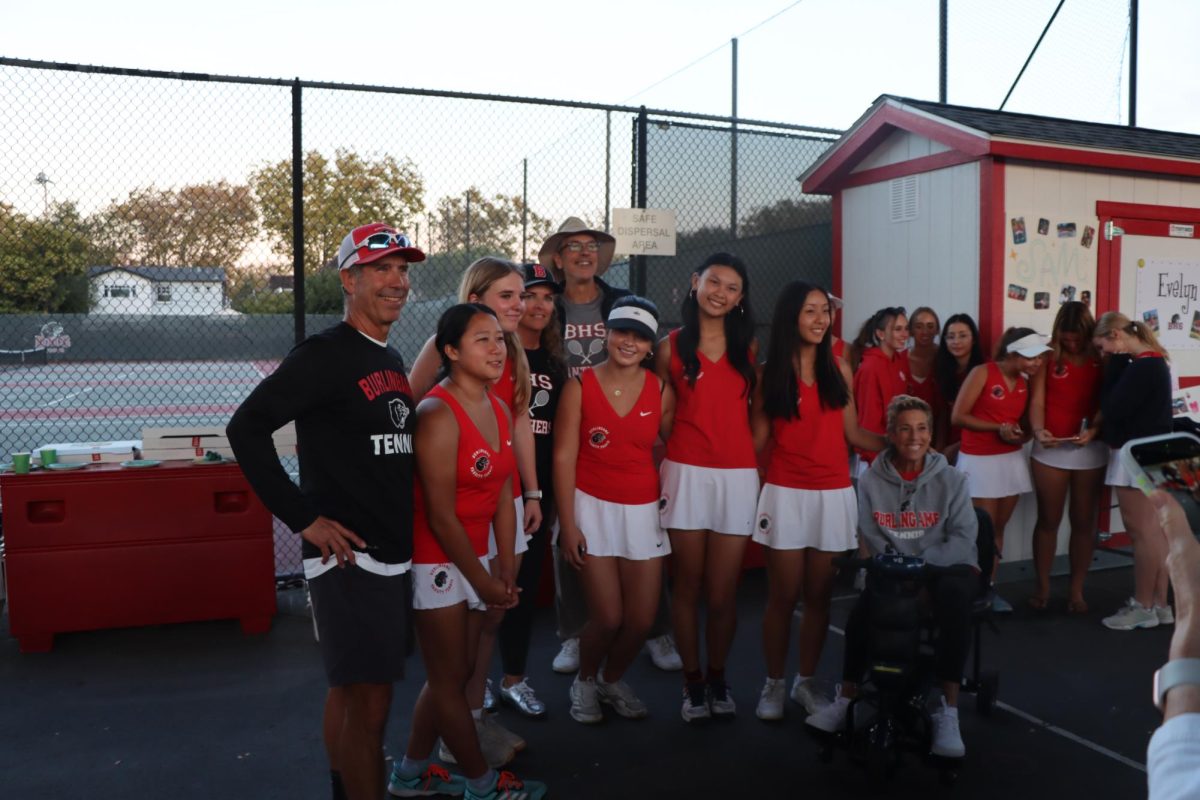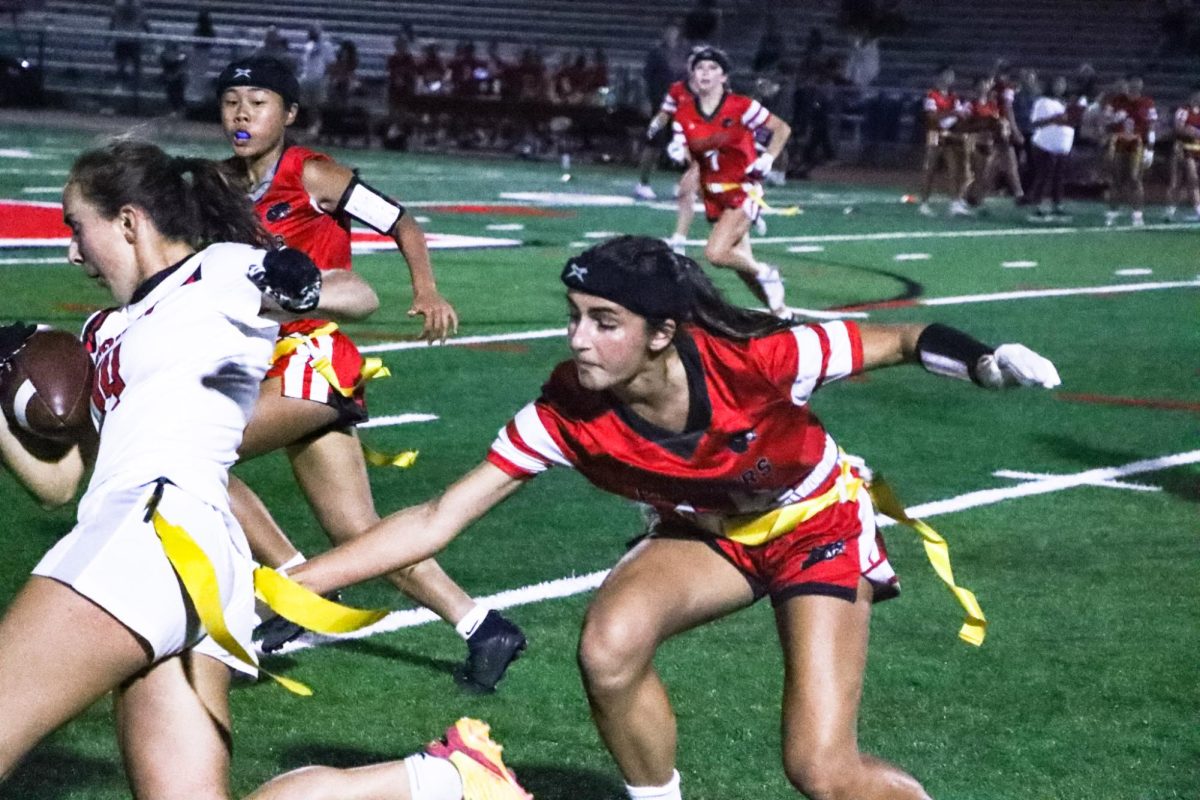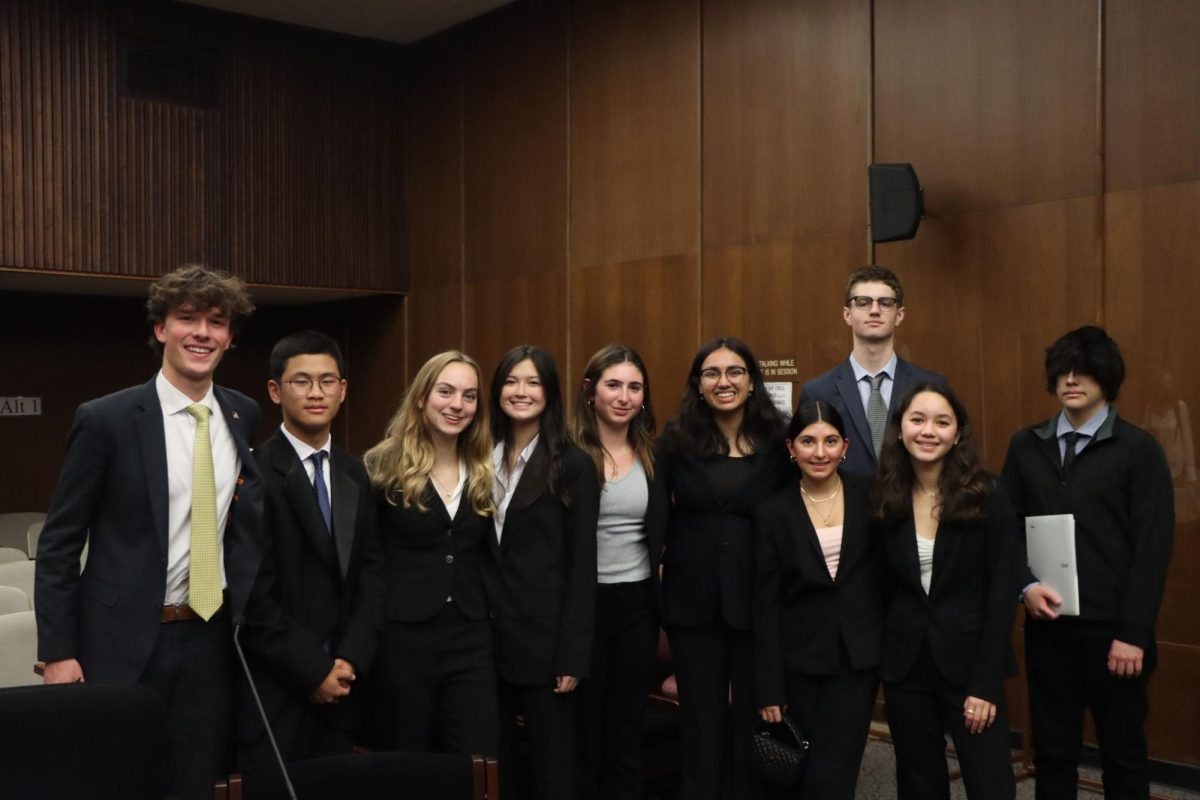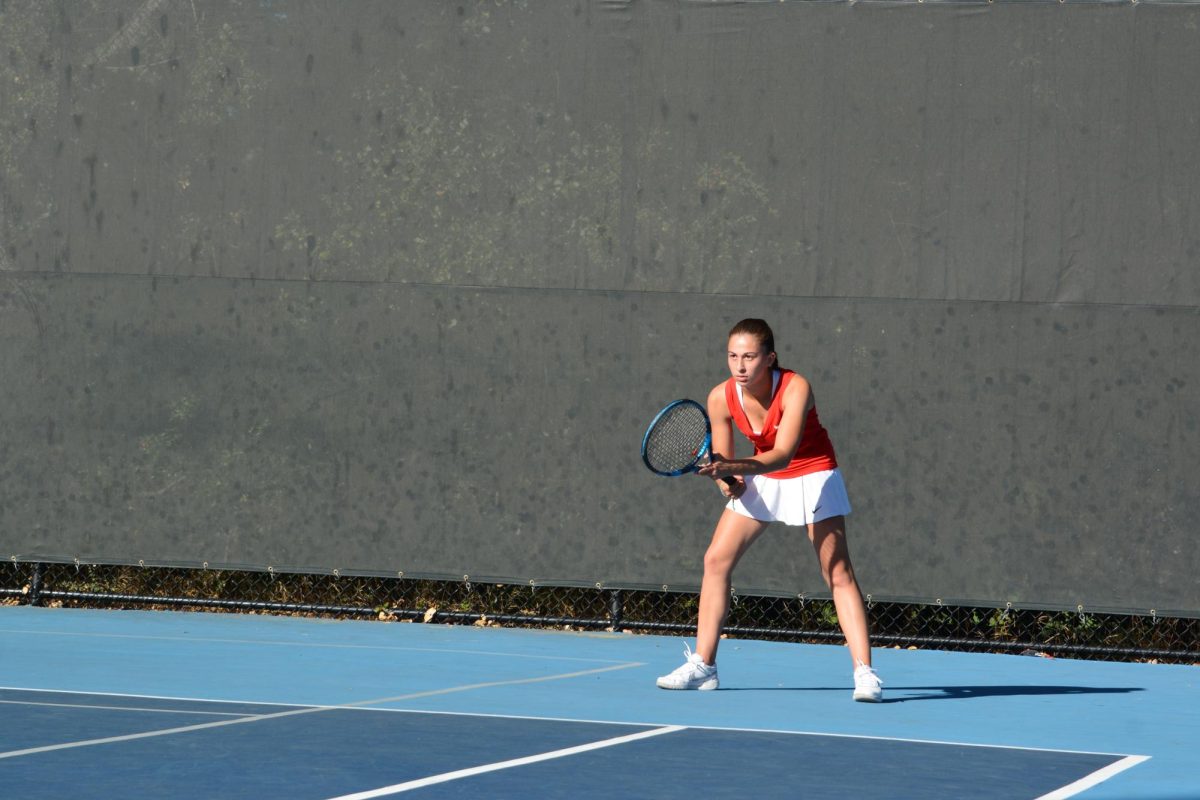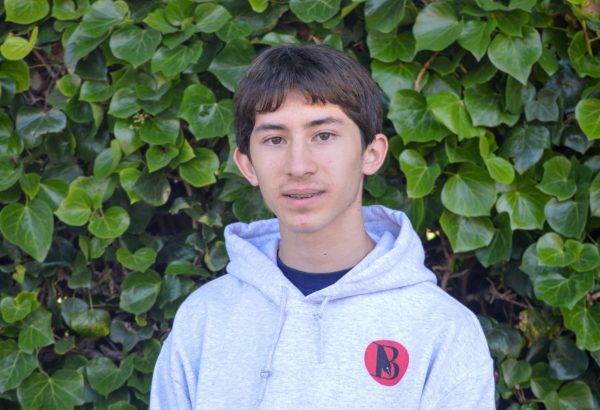The verdict is clear: Burlingame’s mock trial team has had a great season. The prosecution and defense subteams both triumphed in their third and final competition on Tuesday, Feb. 6, securing a third place overall finish in the north division.
Club members agreed that competition days were the highlights of the year. After over six months of preparation and practice, falling into character in the actual courtroom environment was a unanimously rewarding experience. For some, the most fun part was getting to prove themselves and think on the fly during trials.
“Definitely the most fun part is actually doing the trial. So even though a lot of it is very nerve-wracking, once you get in there it is a lot of fun,” sophomore Shai Ring said. “By the end, you’ll feel really accomplished — the whole team has a good time.”
For both the team and their advisor, Advanced Placement U.S. History teacher Elizabeth Bellas, a performance well done offered a cathartic release of tension, rolling beads of sweat paying testament to all of their hard work and focus.
“Usually like the moment right before we start, everyone’s really nervous. They’re like, ‘which side of the room do we sit on? There?’ People are drilling their lines to make sure that they get it — those little moments are really fun,” said club advisor and APUSH teacher Elizabeth Bellas. “Once it’s on we’re acting our very most professional selves, but once we’re done, they’re like, ‘oh my gosh,’ and [start] celebrating.”
While competitions are obvious highlights, club president and senior Keziah Gopalla testified to the value of the connections built along the way.
“I’m honestly just so proud of everyone, I think we’ve grown so much as a team,” said club president and senior Keziah Gopalla. “The best parts [were] the community we built — I think we all got super close — attending competitions, and seeing everyone just come together.”
Bellas found similar joy in witnessing the team bond as they worked together to improve over the course of the year.
“I’m really happy with how the group collaborated and helped each other become better attorneys and witnesses. It seemed during competition season that the team really came together as a community and had a lot of fun competing,” Bellas said.
It can be easy to overlook the enormous amount of effort and dedication necessary to craft a strong performance. In addition to memorizing lots of information and creating strong logical connections for both sides of the case, members have to constantly practice playing their character and improvising as the trial unfolds. The aspect of unpredictability is part of why it is so appealing to many, but forming a cohesive presentation on the fly requires everyone on the team to be focused and frequently rehearse their own part.
“It took so much longer than I expected. We started our club before (many) other clubs started, and I remember in the beginning of the year, some of the leads were like, ‘we’re already behind,’” Bellas said. “I didn’t fully understand, but we were kind of behind already — there’s one case we’re given throughout the year, but it takes a long time to understand it, develop our arguments, then practice over and over again and really refine it.”
The team met every Wednesday to learn court etiquette, go over case materials and start fitting students into specific roles. Later on in the year, they began doing occasional weekend practice scrimmages against other schools to better mimic the competition environment. The team’s friendly and encouraging environment was crucial to easing stress related to the workload and high individual responsibility, members said. It was evident that many, both new and experienced, had a genuinely good time and developed strong relationships with each other.
“It’s great to have been able to work with this really supportive group of people. They really do try to help you get through the process, they’re always trying to help you understand what’s happening,” freshman Deniz Aydin said.
“[The club] is very welcoming and encouraging. There’s criticism, sure, but it’s always constructive criticism to help you get better,” freshman Lydia Covalesky said. “They’re always pushing us to be our best.”
As this is Bellas’ first year advising the mock trial team, she spent a lot of time observing the club dynamics and helping the student leads effectively mentor newer members.
“One of my favorite parts is really helping the lead team be leaders. My approach is definitely a step back — the leads came in with a lot of knowledge, so it’s definitely letting them try to make decisions and giving my input,” Bellas said. “I had them say how the meeting was gonna go and say what kind of strategies we should use. Kind of coaching them to be the coaches was really fun for me.”

